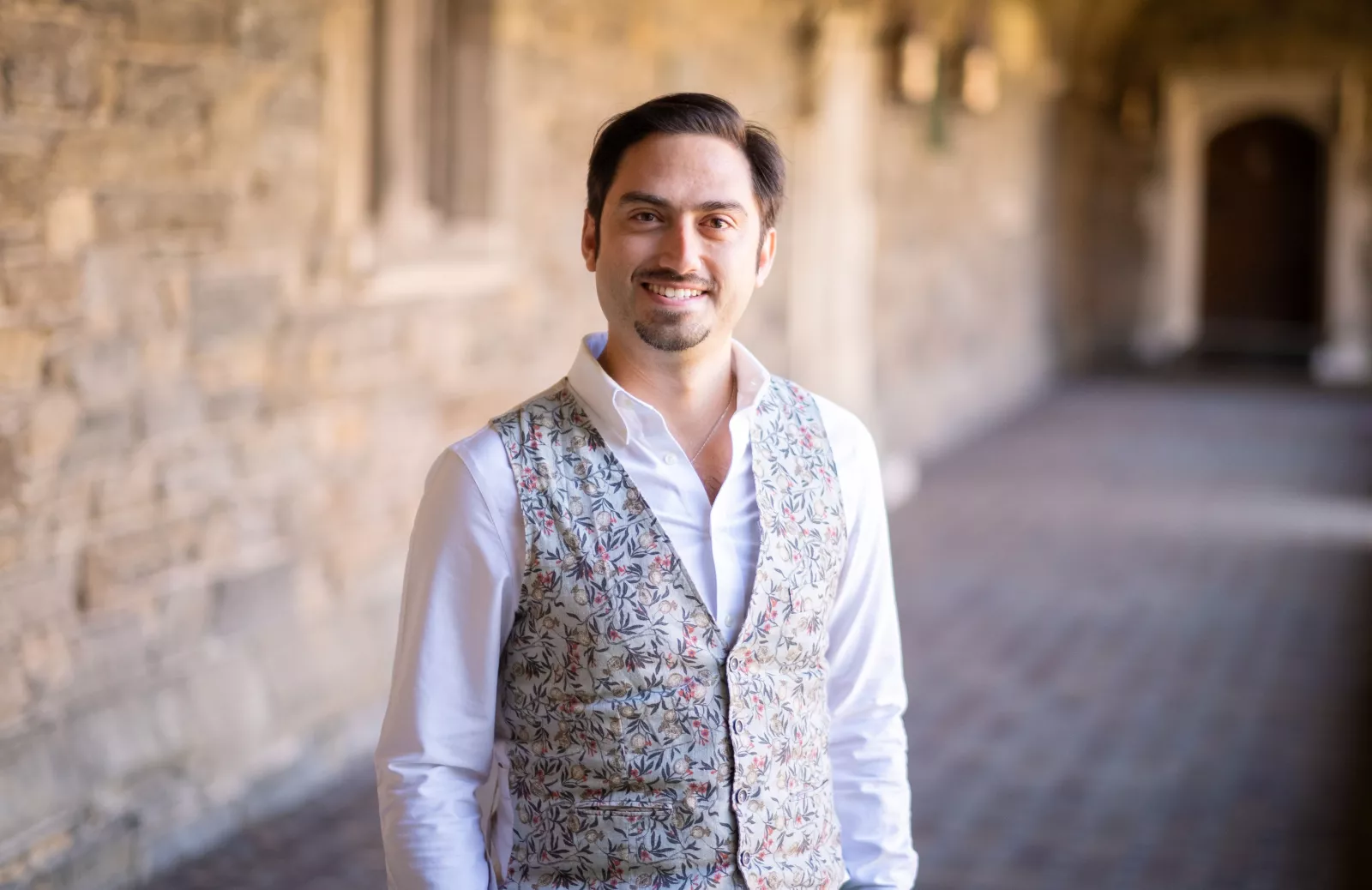
As we begin the semester, we're highlighting Bryn Mawr's newest faculty members. The College supports faculty excellence in both research and teaching.
Assistant Professor of Spanish Juan Suárez Ontaneda was born and raised in Quito, Ecuador.
"My upbringing largely informed my research curiosities at the intersection of culture, political systems, and ideologies," says Suárez Ontaneda. "Specifically, my research has analyzed how Latin American states produce discourses about race and how people respond to those discourses individually and collectively. How we think about culture informs how we think about citizenship and nation."
Suárez Ontaneda's current book manuscript, Palimpsests of Blackness in Latin America: The Performative Lives of Nascimento, Zapata Olivella, and Santa Cruz, examines how Afro-Latin American artists from Brazil, Colombia, and Peru used staged representations (writings, theater, sound recordings, choreographies, film) to challenge racism and discrimination in their respective countries from 1940-2000. By analyzing their staged representations, Suárez Ontaneda shows how these artists used their bodies to communicate messages of racial activism and, by doing so, how they created a vocabulary to protest racial injustices beyond the legal framework of the state.
In Suárez Ontaneda's second project, he examines the connection between sound systems, visual art, and the racialization of sound regulations in Caribbean Colombia and northeastern Brazil. His research on this topic has been published in Modern Languages Notes, Alambique, Perspectivas Afro, and in different edited volumes.
In 2014 he was the head of archival research for the documentary El Panóptico Ciego (The Blind Panopticon) directed by Mateo Herrera. This documentary explored the remains of Ecuador’s oldest prison, Centro de rehabilitación social de varones No. 2, in Quito. He is currently working on a digital humanities project to make the archive's contents accessible to formerly incarcerated communities.
Suárez Ontaneda’s work in the classroom, like much of his research, is informed by his theatrical experiences. He has acted in plays in Ecuador, the U.S., Brazil, and Costa Rica, and likes to incorporate tools from the stage into his teaching.
"These tools help students gain confidence in acquiring a new language, or in understanding challenging theories about literature,” he says. “By bringing students’ histories, journeys, and experiences to the center of my lesson planning, my classroom functions as a laboratory for democracy and cultural dialogue."
Outside the classroom, you can find Suárez Ontaneda, "watching Liverpool games, on a stage working on community theatre, in some pool doing laps, or across town looking for fresh ingredients to cook Ecuadorian recipes."